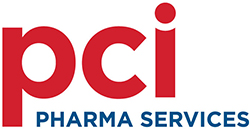Leading global biopharmaceutical services provider PCI Pharma Services (PCI) has announced a momentous investment in support of biologic medicines and advanced injectable delivery forms, totalling more than $20 million.
PCI will add expanded biotech clinical and commercial packaging and release testing capability at its Center of Excellence in Philadelphia, as well as expanded cold chain capacity at numerous global locations to further support its existing biotech infrastructure.
PCI’s latest investment will include capacity expansion for cutting edge technologies for the labelling and assembly of state-of-the-art safety syringes, autoinjector and pen devices with integrated high speed cartoning, inline serialisation, as well as furthering its expansive onsite cold chain storage.
PCI’s injectable delivery form capabilities include ampoules, vials, cartridges and standard prefilled syringes, as well as advanced safety syringes, autoinjectors and pen devices with services including both simple and complex kitting for clinical and commercial applications.
In handling biologic medicines, PCI maintains a comprehensive cold chain and ultra cold chain portfolio with temperature ranges from refrigerated 2-8 °C, frozen -20 °C, -40 °C, -80 °C and cryogenic temperatures of -196 °C for advanced medicinal therapeutic products (ATMPs), including cell and gene therapy medicines.
“I am pleased to share this news regarding our continued investment to support the needs of our biotech customers,” notes Salim Haffar, CEO of PCI.
“It’s estimated that close to 40% of all medicines in pipeline development are biologic, and amazing new therapies are being developed and commercialised every day."
"With the development and commercialisation wave of biologic medicines, the market is rapidly evolving. We are proud to be the partner of choice for drug development companies as they look to outsource these specialised requirements for clinical and commercial packaging. These investments demonstrate our commitment to bring lifesaving medicines to patients around the world.”

